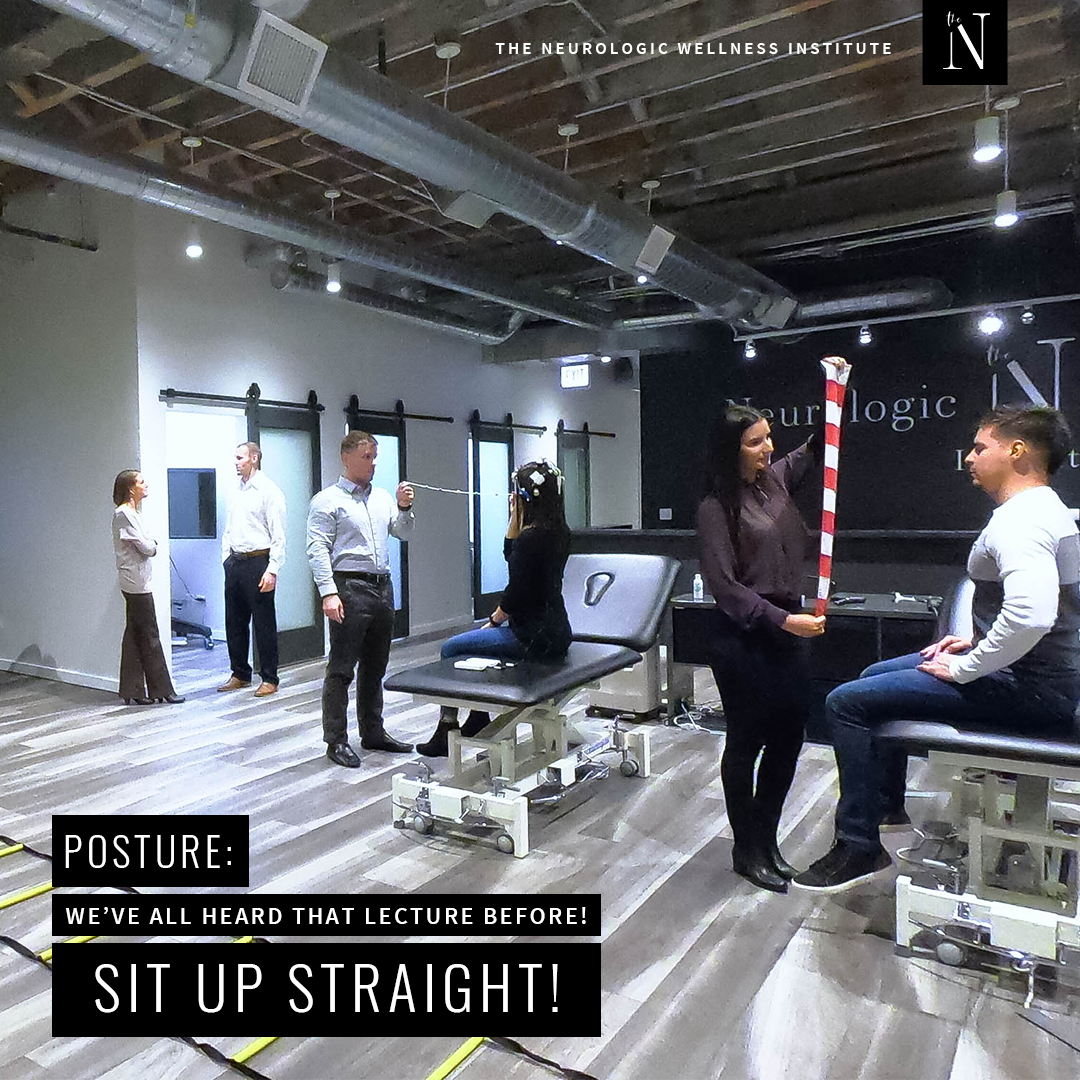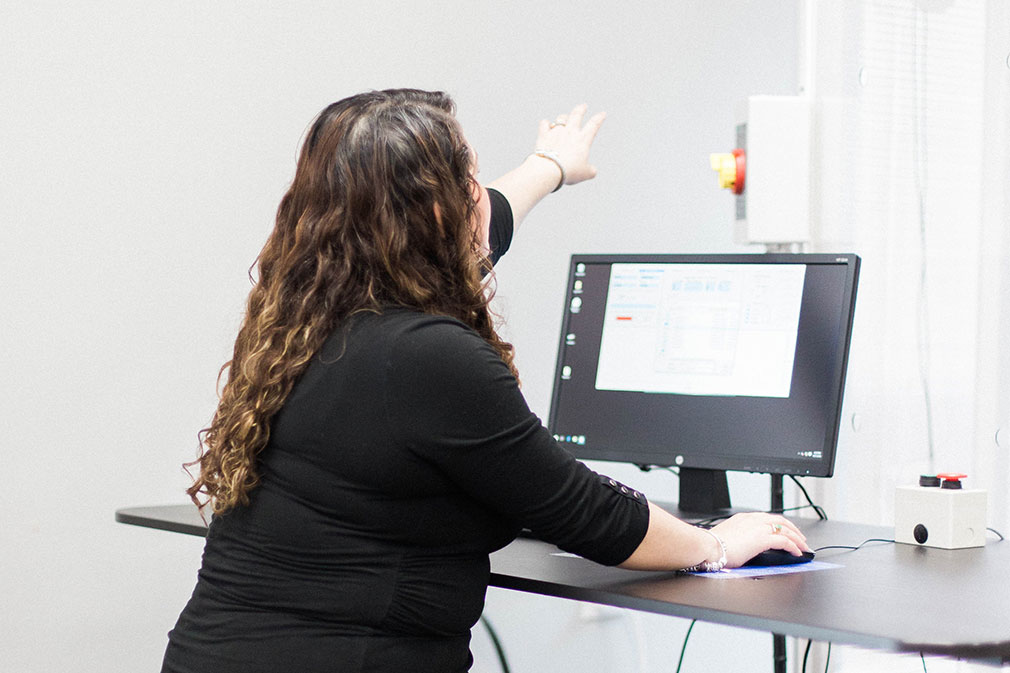Have you ever been told to sit up straight? Or stop slouching?

Your posture is mainly a reflexive function which should not require conscious brain awareness or control. Many neurological disorders are associated with altered posture and balance and it requires a relatively healthy brain to maintain good posture and balance over an extended period of time and through a variety of environmental contexts. For example, some people may have good posture seated, but poor posture standing. Some people may have good balance until something moves in front of them in their visual field. Therefore, we know it takes a healthy brain to have good posture, but we also know that putting your body in specific positions will also alter your brain function.
Researchers have been studying how posture and the “vestibular system” impact brain function. Most people would think of your vestibular system as a system that regulates your posture and balance. However, your vestibular system is connected to a surprisingly wide range of brain structures involved with many more functions outside of balance/posture. One interesting area of research is the impact the vestibular system, typically thought of as a balance/posture system, impacts your ability to taste the flavor in your food.
Research has found that you taste the flavor in your food less when you eat standing, compared to seated. Standing for even a few minutes creates a stress response which seams to mute the taste buds. When standing, the force of gravity pushes blood to the lower parts of the body, causing the heart to work harder to pump blood back up to the top of the body, causing an increase in the speed of the heart. This creates a low-level stress response which increases stress hormones throughout the body. This stress response is thought to reduce sensory perception such that you lose taste evaluation, lose your perception of food temperature, and overall eat less.
The research showed that people who were seated enjoyed their food more than those who ate standing up. The research also showed that when forced to eat foods that people found unpleasant, they had an easier time with the taste of the unpleasant foods when they ate the foods standing up. Where when they ate the unpleasant foods seated, they had a harder time bearing the taste. They also found people who were drinking coffee standing up did not find the temperature as hot as those drinking the same coffee seated. People who were standing up also drank and ate less than those who were seated.
This has created the suggestion when you have to give your kids food or medicine they do not like the taste of, maybe force them to eat it standing up. Perhaps eating standing up can be used as a weight-loss technique because it may help people eat less. Standing up already stresses the heart to pump faster, people who experience dizziness or have cardiovascular issues may be better off always seated while eating. And of course, if you really want to enjoy your food, do it seated and relax.
For more information on The Neurologic Wellness Institute and the conditions, our clinicians manage, schedule a consult with one of our patient care coordinators.
Reference:
Biswas D, Szocs C, Abell A. Extending the boundaries of sensory marketing and examining the sixth sensory system. Journal of Consumer Research. 2019.




